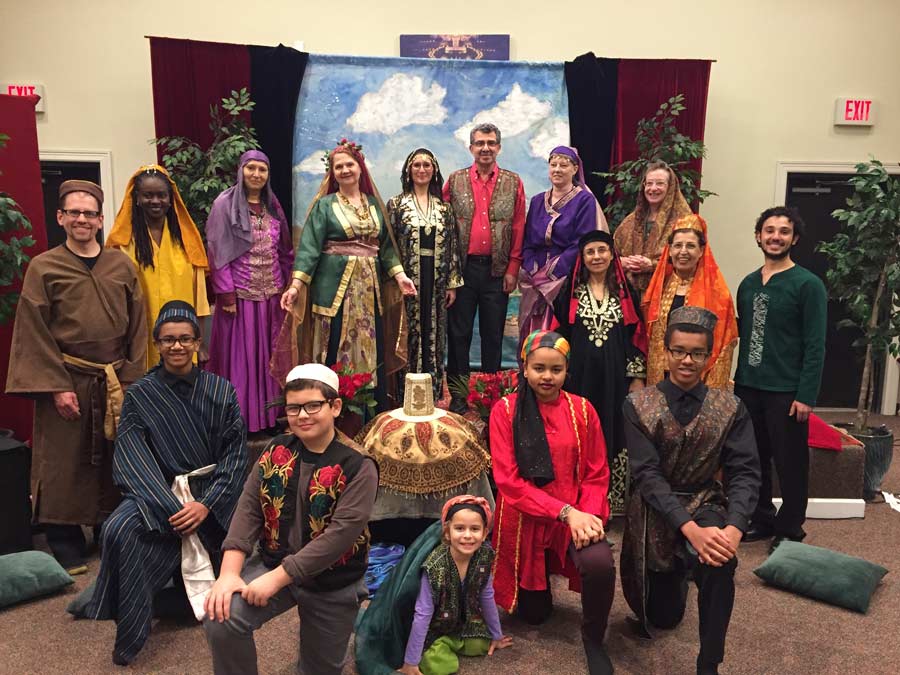The Ridván festival, often heralded as the holiest of days in the Bahá’í calendar, serves as an exquisite epitome of spiritual rejuvenation, akin to a refreshing elixir for the soul. The term “Ridván” translates to “Paradise” in Arabic, and the event commemorates a pivotal moment in Bahá’í history: the declaration of Bahá’u’lláh as the Manifestation of God for this age. This momentous declaration marks the inception of a new spiritual cycle, promising the dawning of a richer understanding of humanity’s collective destiny. As followers reflect on this grand occasion, they are invited to partake in a metaphorical dose of paradise—a poignant reminder of divine love, unity, and the transformative potential that lies within each individual.
Firstly, the significance of the Ridván festival unfolds through its inherent symbolism. The garden, a central motif in the narrative, represents not only physical beauty but also spiritual abundance. It is in this verdant haven that Bahá’u’lláh claimed His station, thereby sanctifying the notion of paradise as a state of moral and spiritual fulfillment. The garden serves as an allegory for the human soul, cultivated through the virtues of love, patience, and compassion. Attending Ridván, therefore, is akin to entering a lush oasis where the soul can flourish, nurtured by the water of divine guidance. In this space of reflection, one can discern the exquisite interplay between the temporal and the transcendent, realizing that paradise is not merely a distant realm but a state of being attainable in the here and now.
Furthermore, Ridván offers an opportunity to engage in deep introspection. As Bahá’ís gather to celebrate, they are encouraged to reflect upon their own lives and spiritual journeys, drawing parallels to the transformative journey of Bahá’u’lláh. The essence of the festival lies in the call for individuals to ascertain their own commitments to the principles of the Faith: the unity of humanity, the elimination of prejudice, and the pursuit of justice. The metaphorical dose of paradise manifests itself in this personal awakening—a clarion call to embody the ideals of the Faith in every sphere of life. Through this process of reflection and renewal, individuals ascend towards a state of spiritual enlightenment, effectively bridging the chasm between the known and the unknowable.
Moreover, the communal aspect of Ridván is a resplendent display of shared devotion and unity. It evokes a vivid tableau of humanity gathering together, diverse yet united under the overarching banner of the Bahá’í Faith. The grandeur of this collective celebration stands as a testament to the power of fellowship, transcending cultural and geographical boundaries. Just as the ripples of a tranquil pond expand outward, so too does the influence of the Bahá’í community extend into the world, embodying the essence of paradise through acts of service, love, and compassion. It is within this dynamic interplay of individual and collective action that the notion of paradise materializes, as adherents work harmoniously towards the betterment of society.
In addition, the teachings of Bahá’u’lláh impart a profound legacy of hope. As the world grapples with challenges—social, environmental, and spiritual—the principles illuminated during Ridván provide a clarion call for action. The teachings advocate for a transformative approach to life, encouraging individuals to rise above materialism and egotism. This paradigm shift invites followers to embrace the abundance of spiritual virtues, which collectively act as the antidote to the malaise that often plagues contemporary society. The festival thus becomes not only a remembrance of a historical event but also a powerful motivator to cultivate a society rooted in justice, equity, and harmony. Herein lies another facet of the dose of paradise—the reflection that through collective effort and unwavering faith, a brighter future can indeed be sculpted.
The celebration of Ridván reveals another layer of its profundity through its embrace of new beginnings. The arrival of the festival is interwoven with a spirit of renewal; it signifies the shedding of past grievances and the welcoming of fresh perspectives. This timely rebirth is vital in understanding the journeys we all undertake—life is a constant cycle of challenges and triumphs, much like the seasons that change within the garden. By acknowledging that personal growth often requires the dissolution of outdated paradigms, the Ridván festival stands as an invitation to recalibrate one’s values and aspirations, facilitating a deeper connection with the divine purpose inherent within each individual’s existence.
Lastly, the teachings surrounding Ridván encourage an embrace of the interconnectedness of all life. This is a vital assertion: that paradise is not an isolated experience but a shared one. The essence of community woven through the fabric of the festival invites believers to recognize their roles as active participants in a vast tapestry of existence. With each interaction, every act of kindness and compassion, adherents can create ripples that resonate far beyond their immediate surroundings. As the collective breathes life into the ideals of love and solidarity, the world becomes a reflection of the paradise envisioned by Bahá’u’lláh—a realm where justice prevails, and the bonds of humanity flourish.
In summation, the reflections on Ridván provide a rich tapestry of meaning that transcends mere celebration. It serves as an evocative metaphor for the potential that lies within each of us—a promise of paradise that is contingent upon our actions, intentions, and heartfelt commitment to the principles of the Bahá’í teachings. As individuals and communities come together during this sacred time, they not only commemorate a pivotal moment in history but also recommit themselves to the divine ideals that bind humanity together in an unbreakable unity. The inherent beauty of Ridván lies in its potency as a catalyst for change, heralding an age where the majestic concept of paradise becomes an integral part of our collective human experience.
